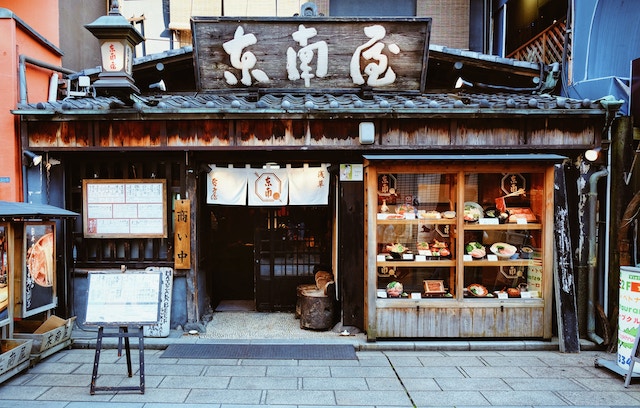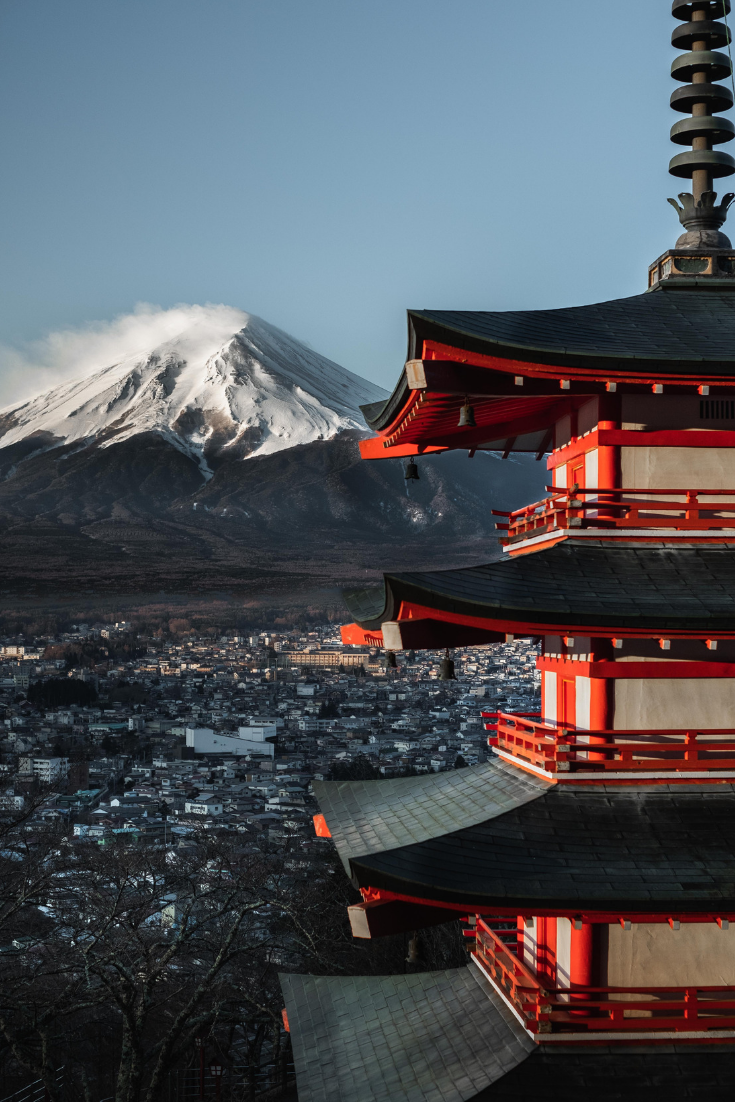Japan Travel Tips: Ariel’s Take on Health, Safety and Romance

Japan Travel Tips: Ariel’s Take on Health, Safety and Romance
Health in Japan
Feminine Hygienic Products in Japan: What’s available/what’s legal/where to buy them?
It’s a common misconception that it’s difficult to find tampons in Japan, as this used to be the case, but there’s no need to worry about packing a bunch from home nowadays. You’ll easily find pads and tampons in any convenience store or drug store in Japan. If you’re looking for alternative products like menstrual cups, menstrual sponges, or washable pads, you’re better off bringing your own, or ordering them online on Amazon Japan.
Birth Control in Japan: What’s available/what’s legal/where to buy them?
For all types of birth control, one must schedule a check-up with a doctor in Japan (which usually goes over your medical history, measures your blood pressure, and administers a cervical cancer exam). While the check-up itself is covered by the National Health Insurance, the contraceptives aren’t. Also, you likely won’t find the same name brand that you are used to, so be prepared to discuss the best substitute with your doctor.
Oral contraceptives (or “pi-ru”) are in much lower dosages in Japan, running at about 2,000-3,000 JPY per month. Most doctors only provide 1-month prescriptions, requiring check-ins every month to renew your prescription.
All other forms of birth control (except condoms) are not as common in Japan, but do check with your doctor if you’re interested in an alternative. The following articles provide more comprehensive information about each type and how to get a hold of them:
Lady Doctor Basics: Women’s Health in Japan
A Guide to Birth Control Pills in Japan
Gynecologists in Japan: Are there any that you recommend? How, if at all, is a visit different from at home?
The aforementioned blog entry also has a lot of information about OB/GYN’s in Japan, including recommendations. It’s fairly easy to find an English-speaking practitioner in Japan. I’ve heard some doctors have widely varying advice for women during pregnancy that focuses more on Japanese women’s bodies and their concerns (for example, how much weight gain is too much), but overall a visit to the gynecologist is one you’re probably familiar with from home.
As far as accepting Japanese National Health insurance, there are also “Ladies Clinics” which provide everything from birth control and emergency contraceptives, to check-ups and pap smears.
Breastfeeding in Japan: What are accepted places for women to breastfeed? Is it accepted to do so in public?
While it’s not frowned upon to breastfeed in public in Japan, most women breastfeed in private or are quite discreet about it, using one of the many products available to avoid attracting attention (you can find them in Babies R Us or the maternity section of department stores). There are many rooms available to mothers both on transportation (shinkansens have private booths) and in department stores throughout Japan (called bonyuushitsu).
Love and Dating in Japan
Dating Locals in Japan: What are the norms and traditions? What should women look out for?
It’s quite common for foreigners date locals in Japan and one will often find cross-cultural couples and families. One should always watch out for “gaijin hunters”, or people who specifically seek out and date foreigners regardless of the personality or interests of the individuals they’re dating.
Otherwise, dating in Japan is much like dating in the U.S.: it’s easy for some, difficult for others. You’ll find some people you get along with, and others are dating horror stories.
Types of Japanese Men: Describe a few “typical” types of men
I don’t have any personal experience dating Japanese men, but I feel this article helps provide a summary.
Is Japan LGBTQ-friendly?
I can only speak for big cities like Tokyo and Osaka, but these places are fairly LGBTQ-friendly. PDA is generally avoided no matter the couple’s orientation, but what one does in their private lives is left up to them. There are many groups, bars, clubs, and neighborhoods where one can go comfortably. There is a pride festival as well as other smaller festivals to celebrate LGBTQ. While marriage is not yet legal, as with other countries, the youth of Japan are pushing the movement forward, and positive changes are being made every year.
Gender Issues in Japan
Women’s Rights in Japan: Do women have the same position in society as men? How can you tell?
Japanese women do not yet have the same position in society as men. For most of Japan, women are still expected to get married, have children, and become stay at home moms while the father works long hours and plays a very small roll in raising the child. In the corporate world, it’s still rare to see a woman who has children and is still working a full-time job, especially in a manager position or higher.
The majority of Japanese businesswomen still have to make the choice between career and family.
While women are not disrespected, they are still seen as the weaker sex and need to be taken care of by either their fathers or their husbands. To be a single woman in Japan over 30 is quite strange, as is a woman who doesn’t have children when they’re of age. That being said, foreign women, and foreigners in general, are held to a different standard. A foreign woman in Japan might not be subject to the same gender gap.
If you’re just traveling through Japan, you likely won’t run into any issues regarding women’s status in Japan.
Local Japanese Women: What are some clear cultural differences between you and them?
The cultural differences between foreign women and local women stem from the same cultural differences between all foreigners and locals in general, regardless of gender. I’ve personally found it’s easy to get along with many Japanese women, especially those who are interested in learning about the west in general and practicing speaking English.
Women-Specific Environments in Japan: Are there places where only women are or are not allowed?
There are women-specific subway cars (the first car) during busy commute hours (typically 7-9 am).
Japan’s famous capsule hotels also used to be men-only and have only relatively recently allowed women to stay (mostly for safety reasons). If you’re planning on staying in a capsule hotel, it’s best to do some research ahead of time to make sure they accept women. Some have women-only floors as well, but don’t be surprised if you’re turned away from a random capsule hotel.
Besides that, the only other places women aren’t allowed are related to Shintoism, specifically Mount Omine (A UNESCO World Heritage Site in Nara) and inside Sumo wrestling rings.

Perception of Foreign Women in Japan: How do local men/women react to you when you say where you’re from?
Because Japan is still a relatively homogeneous society, foreigners always stand out, even foreigners who might be of Japanese heritage. This can have both positive and negative effects. One positive effect is that some locals will jump at the chance to speak in English and help you if you seem lost. Also, as an outsider, you typically aren’t held to the same standard as Japanese natives, so any small effort to adhere to norms or customs is usually appreciated, and small breaches in rules are quietly ignored.
On the other hand, being a foreigner means you will never truly be Japanese, no matter your length of stay, fluency, or adaptability to the culture. Additionally, Japanese advertising, like much of Asia, still tends to promote light skin = beauty, which means many people end up treating foreigners as an desirable object or more likely to be a criminal, depending on where you fall on the skin color spectrum.
As with other aspects relating to women in Japan, these issues might not come up if you are passing through for a short time; it’s living in Japan when you can really feel these differences.
Safety in Japan
Transportation in Japan: Any that are safer/less safe for women to take?
All transportation is equally safe, though one should always be careful when taking crowded trains or buses. While it’s still somewhat of a rarity, there are stories of women being harassed or groped. Still, many people would agree that even in its most crowded cities, Japan is a very safe country.
Dangerous area/s in Japan: Any specifically for women?
Of course, one should be more careful when walking alone in areas with many bars/clubs, largely because a lot of people will target you to get you to go to their club or bar, and in some areas, drunk men might hit on you more. They aren’t dangerous per se, you just have to be on higher alert.
General places to avoid regardless of gender include Kabukicho, Tokyo at night (Red Light District) and Kamagasaki, Osaka (large homeless population).
Clothing in Japan: What to wear/what not to wear?
In big cities like Tokyo and Osaka, foreigners can wear pretty much anything. One rarely sees tank tops and shorts. In general, you won’t see many women in shorts or spaghetti straps, so if you want to blend in, go for pants/capris, shirts with sleeves, or dresses with cardigans. If you want to dress like a local, Japanese women tend to wear pantyhose when any skin is showing, especially for skirts, shorts, and dresses.
Japan Travel Tips
1. City or museum passes
The katsu (Japanese style fried chicken) you get from Life Supermarket is a tasty and cheap meal that easily compares to the restaurant down the street. For a typical Japanese experience, grab a bento box before your Shinkansen trip.
Japan Travel Tips: Ariel’s Take on Health, Safety and Romance Related Reading
3. Look for Nomihoudai (all you can drink) or Tabehoudai (all you can eat) deals
If you’re looking for a great restaurant experience on a budget, a tasty and enjoyable option is to seek out nomihoudai or tabehoudai. For a set price (usually around 2000 – 3000 JPY) you can have 1-3 hours of endless yakitoris (barbecued meat skewers) and umeshus (Japanese plum wine).
If you’re in a new city, try to look for these offers in chain restaurants, rather than smaller Izakayas or hole in the wall places. The chain restaurants are able to support these deals without cutting corners (like watering down drinks) or requiring minimum purchases. Some of my favorites are Monteroza and Nabezo.
4. Shop at 100 yen shops and second-hand/recycle shops
Japanese products are known for their quality, and that doesn’t end at the 100 yen shop. Unlike the 99 cents store, 100 yen shops sell items that are of surprisingly good quality. You can get some really good deals for items that are usually higher priced elsewhere.
They’re as convenient and ubiquitous as Japan’s konbini’s(convenience stores) and contain pretty much everything you’ll need and want, and probably a lot of things you didn’t know you needed. Walk in for a toothbrush and come out with 10 kawaii souvenirs, a new favorite snack, and a portable banana keeper.
Japan’s second-hand shops are also a cut above what you might be used to, largely because it’s deeply ingrained in Japanese culture to avoid used objects, even if they’re still almost-new or in good condition. You can find appliances, clothing, gadgets, and gifts all for half price in near-mint condition.
Japan Travel Tips: Ariel’s Take on Health, Safety and Romance Related Reading
The most popular chain stores are the Hard Off stores (and Mode Off, which sells used clothing, Book Off, which sells books, etc.), but wander around smaller streets and you’re bound to stumble across a privately owned recycle shop.
Traveling on a budget is always tricky. What should you pass up and what should you indulge in? My rule is, if it’s something you probably won’t experience again, it’s better to find a way to make it work than regret missing out. Have a truly unforgettable experience in Japan!
Japan Travel Tips: Ariel’s Take on Health, Safety and Romance Related Reading
Living in Japan: In Conversation with Ariel Annon
Top 5 Japanese Etiquette Blunders You Must Never Commit
Travel Japan: A Conversation with Claire Leatherbarrow
Tips for Enjoying Japan on a Budget
Why You’ll Want to Plan Your Travel in Japan Carefully
5 Tips for Solo Travel in Japan
6 Things that Surprised Me about Life in Japan
Do you have tips for women travelers in Japan? Email us at editor@pinkpangea.com for information about sharing your experience and advice with the Pink Pangea community. We can’t wait to hear from you.
Japan Travel Tips: Ariel’s Take on Health, Safety and Romance Related Reading top photo credit: unsplash
Japan Travel Tips: Ariel’s Take on Health, Safety and Romance








